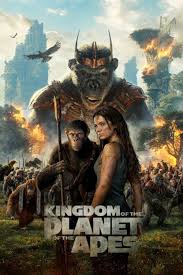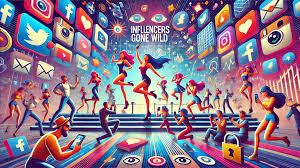In today’s fast-paced world, the need for amusement and entertainment has never been greater. As we navigate the complexities of daily life, finding ways to unwind and enjoy ourselves is essential for maintaining mental and emotional well-being. This article delves into the multifaceted realm of amusement, exploring various forms of entertainment that captivate and delight us.
The History of Amusement
Since ancient times, entertainment has played a crucial role in human culture. From the Roman gladiatorial games to the Greek theater, civilizations have always looked for innovative methods to involve and amuse their citizens. Gaining an appreciation of entertainment’s past might help one better understand its present and future developments.
Ancient Amusements
Public spectacles were a common source of entertainment in ancient societies. Ancient Rome saw a lot of popularity in gladiatorial combat, chariot racing, and theatrical productions, which drew sizable audiences seeking thrills and spectacle. Parallel to this, ancient Greece was well-known for its theatrical productions and athletic events that honored both physical and creative talent.
Medieval and Renaissance Entertainment
With the emergence of fairs, festivals, and pageants throughout the Middle Ages, entertainment changed. These gatherings provided a blend of social contact, business, and entertainment. Classical entertainment enjoyed a resurgence during the Renaissance, with a focus on literature, music, and the arts.
Modern Amusement Parks: A World of Wonder
The emergence of amusement parks is one of the biggest innovations in the entertainment industry. These parks include a wide range of rides and attractions that are sure to excite and delight guests of all ages.
The Birth of Amusement Parks
The first contemporary amusement park, Coney Island, opened its doors in New York in the 19th century, which is when the idea of amusement parks originated. Coney Island paved the way for the emergence of other amusement parks with distinctive experiences and attractions all over the globe.
Iconic Amusement Parks Around the World
Among the most well-known theme parks in existence today are Six Flags, Universal Studios, Disneyland, and Walt Disney World. A unique combination of rides, performances, and themed areas that take guests to imaginative realms are available at each of these parks.
Disneyland and Walt Disney World
Disneyland’s immersive themed zones and attractions, which are based on well-known Disney characters and tales, transformed the amusement park business when it debuted in 1955. With its many theme parks, resorts, and entertainment choices, Walt Disney World, which debuted in 1971, built on this idea and became one of the most popular tourist destinations worldwide.
Universal Studios
The movie-themed attractions at Universal Studios parks are well-known for giving guests the opportunity to relive their favorite movies in thrilling new ways. Universal Studios offers a wide variety of entertainment choices, from the fast-paced excitement of the Fast & Furious series to the magical realm of Harry Potter.
Six Flags
Rides that will make your heart race, such as the thrilling roller coasters at Six Flags resorts. Six Flags provides a vast range of attractions, from family-friendly rides to some of the tallest and fastest coasters in the world, at several sites throughout North America.
The Rise of Digital Entertainment
The emergence of digital entertainment has revolutionized the way we enjoy entertainment, in addition to traditional amusement parks. Virtual reality, streaming services, and video games have created new entertainment opportunities and enabled us to interact with material in previously unheard-of ways.
Video Games: Interactive Amusement
With its interactive experiences ranging from lighthearted smartphone games to intricate, narrative-driven titles, video games have emerged as a prominent form of entertainment. With well-known titles like Call of Duty, The Legend of Zelda, and Fortnite catching gamers’ attention globally, the gaming business has seen exponential growth.
Virtual Reality: Immersive Experiences
The advent of virtual reality (VR) technology has revolutionized digital entertainment by offering consumers completely immersive experiences that immerse them in virtual worlds. Virtual reality (VR) delivers an engagement and realism level that is unmatched by conventional forms of entertainment, whether it is used for simulated adventures or for exploring fanciful landscapes.
Streaming Services: Endless Content
Netflix, Disney+, and Amazon Prime Video are just a few examples of the streaming services that have completely changed how we watch television. These platforms provide many entertainment alternatives that we can enjoy from the comfort of our homes, thanks to their enormous libraries of films, TV series, and original material.
The Psychological Benefits of Amusement
Not only may amusement activities be enjoyable, but they also have important psychological advantages. Entertainment and amusement have been shown in studies to lower stress, elevate mood, and increase general wellbeing.
Stress Relief and Relaxation
Entertainment pursuits provide a much-needed respite from the demands of everyday life. Playing our favorite video game, watching our favorite movie, or taking an exciting ride at an amusement park are all great ways to relax and rejuvenate.
Social Connection and Bonding
Many types of entertainment, like going to a theme park or concert, are communal pursuits that foster relationships and camaraderie. Relating to friends and family via shared experiences may improve bonds and provide enduring memories.
Cognitive Benefits
Some forms of entertainment, especially puzzles and video games, may improve mental abilities including hand-eye coordination, problem-solving, and strategic thinking. These mental exercises stimulate the brain in novel ways, encouraging mental dexterity and inventiveness.
Future Trends in Amusement
The future of entertainment promises even more cutting-edge and thrilling experiences as technology advances. The potential applications of virtual reality (VR) and augmented reality (AR) are almost limitless, as is the incorporation of AI into entertainment.
Augmented Reality: Blending Real and Virtual Worlds
AR technology creates a blended experience by superimposing digital material over the actual environment, which may improve a variety of entertainment options. With the help of AR games like Pokémon GO and interactive museum exhibitions, technology is opening up new avenues for interaction with our environment.
Artificial Intelligence: Personalized Entertainment
AI has the power to completely transform the entertainment industry by providing individualized experiences based on user preferences. This technology may provide immersive and distinctive kinds of entertainment, ranging from AI-generated music and art to adaptable video game storylines.
Sustainable Amusement
The entertainment sector is looking explore methods to integrate sustainability into its operations as environmental concerns become in importance. Future amusement might be both entertaining and ecologically responsible, with things like digital entertainment that uses less physical resources and theme parks that are more environmentally friendly.
Conclusion
Entertainment and amusement are vital aspects of life since they provide happiness, ease, and a way to socialize. The entertainment industry will keep developing as we look to the future, providing us with fresh and inventive ways to be entertained, delighted, and inspired.











